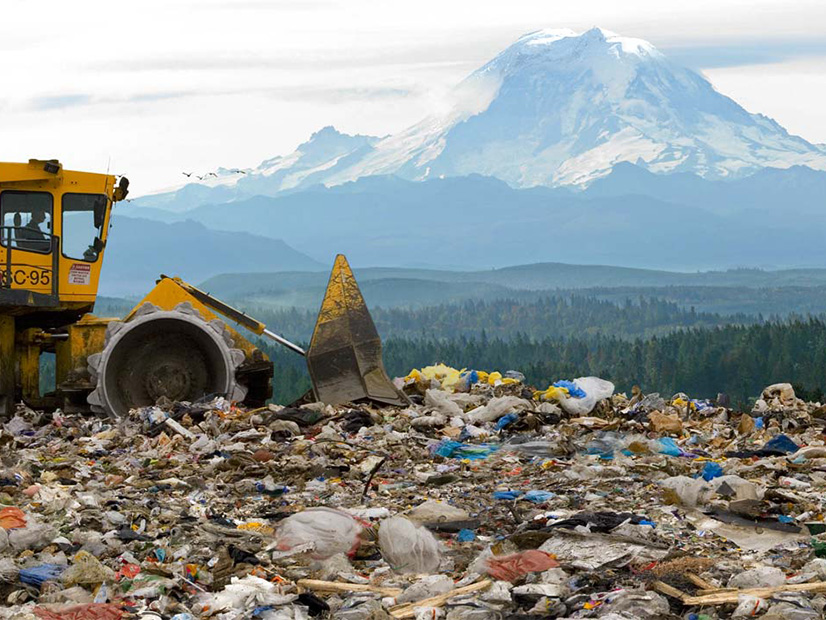
A bill to regulate methane emissions from landfills drew praise and concerns during a hearing of the Washington House Environment and Energy Committee on Tuesday.
Questions surfaced about the costs and extent of House Bill 1663, introduced by Rep. Davina Duerr (D).
In its present form, the bill requires the owner or operator of a covered landfill with 450,000 tons or more of waste in place to calculate the quantity of gas generated by the landfill.
If that calculation exceeds 3 MMBtu per hour, the operator would have to install and operate a gas collection and control system. A collection system would also be required if methane emissions hit 500 parts per million (ppm), as determined by instantaneous surface emissions monitoring, or if an average methane concentration reaches 25 ppm based integrated surface emissions monitoring.
The bill does not apply to landfills that handle solely hazardous wastes or only inert waste or non-decomposable wastes.
California and Oregon already have similar landfill emissions rules in place. (See Oregon Adopts Nation’s Strictest Landfill Emissions Rules.)
Landfills contribute to climate change with their methane emissions. “Methane stays in place for 10 years instead of 100 years, but it has 100 times the impact of carbon emissions,” Duerr said at the hearing.
Methane emissions from the state’s landfills are estimated to equal those of roughly 320,000 cars, said Martha Hankins, a manager with the Washington Department of Ecology.
“Methane is one of the most impactful greenhouse gases,” said Deepa Sivarajan, Washington policy manager with Climate Solutions. Heather Trim, executive director of Zero Waste Washington, said, “This bill is way overdue.”
Methane accounted for 10% of the nation’s emissions in 2019, according to EPA estimates. EPA figures show that landfills account for 17% of the nation’s emitted methane, behind fuel production at 30% and livestock-related emissions at 27%.
Utilities and waste management officials voiced concerns about the unknown costs of implementing the bill and asked for more study on the subject. They also wanted a better grasp on which specific locations would have to comply with the bill’s requirements
“It is a significant unfunded mandate for municipal solid waste programs,” said Paul Jewell, policy director with the Washington State Association of Counties.


